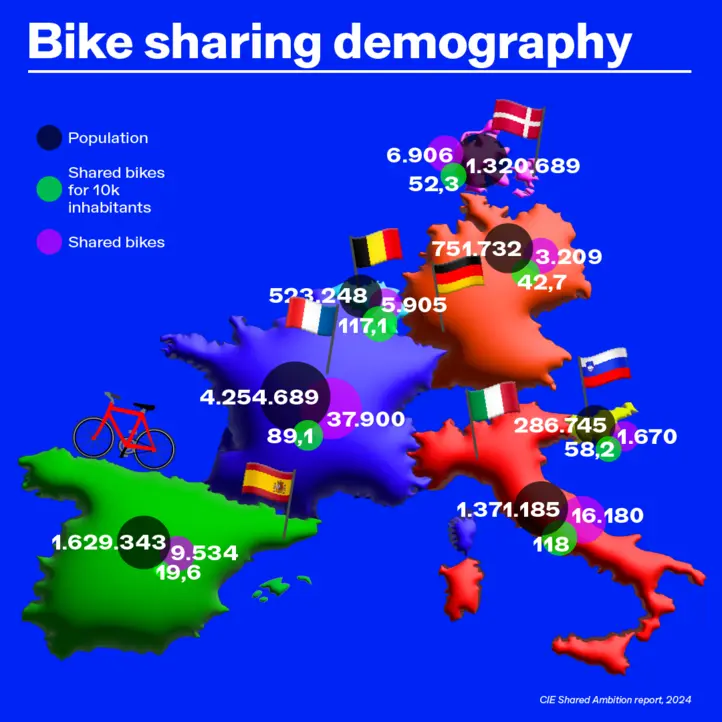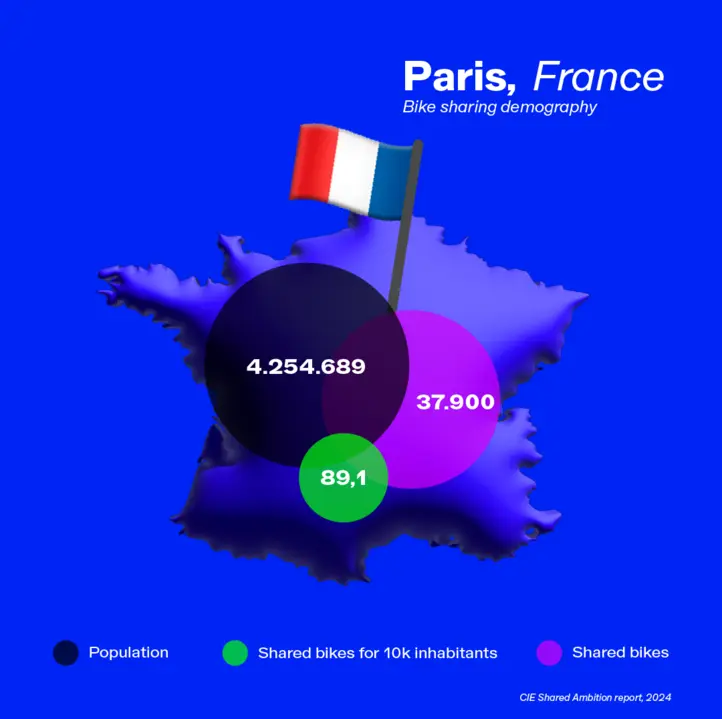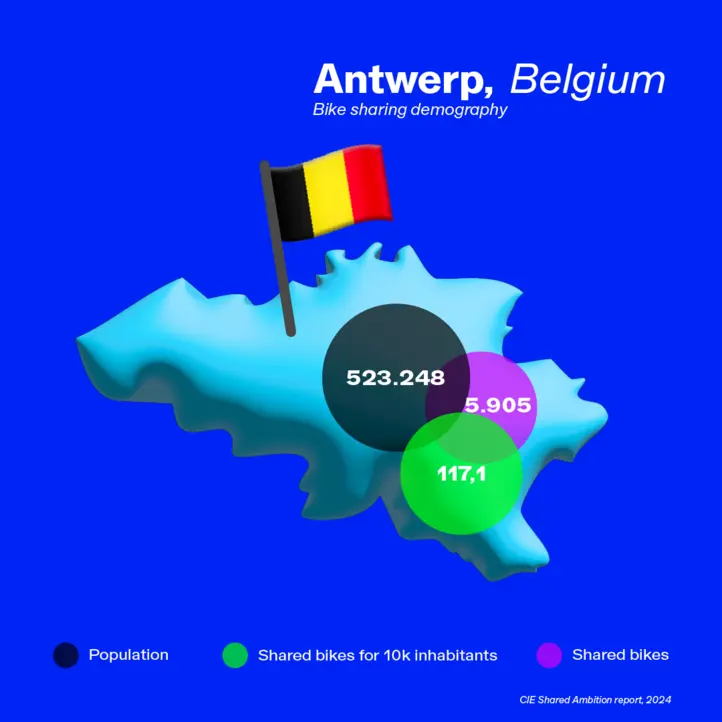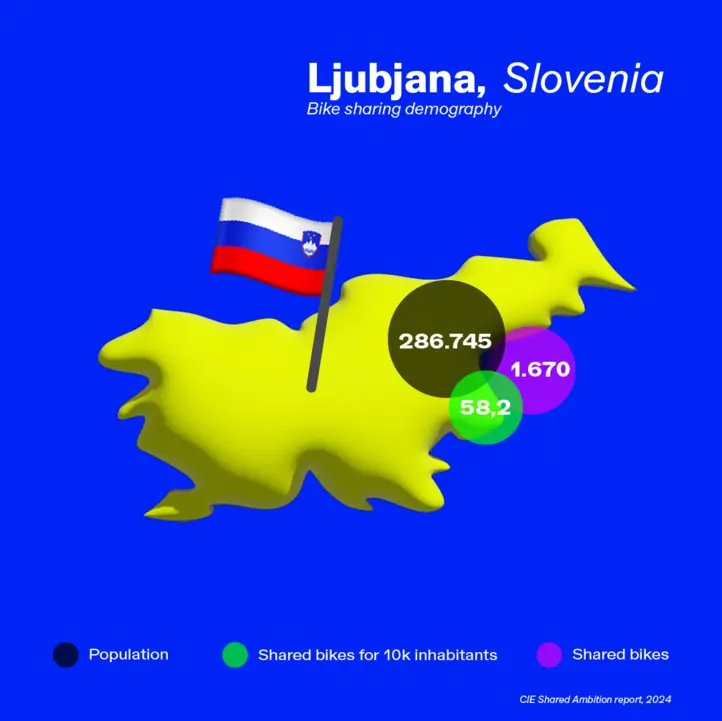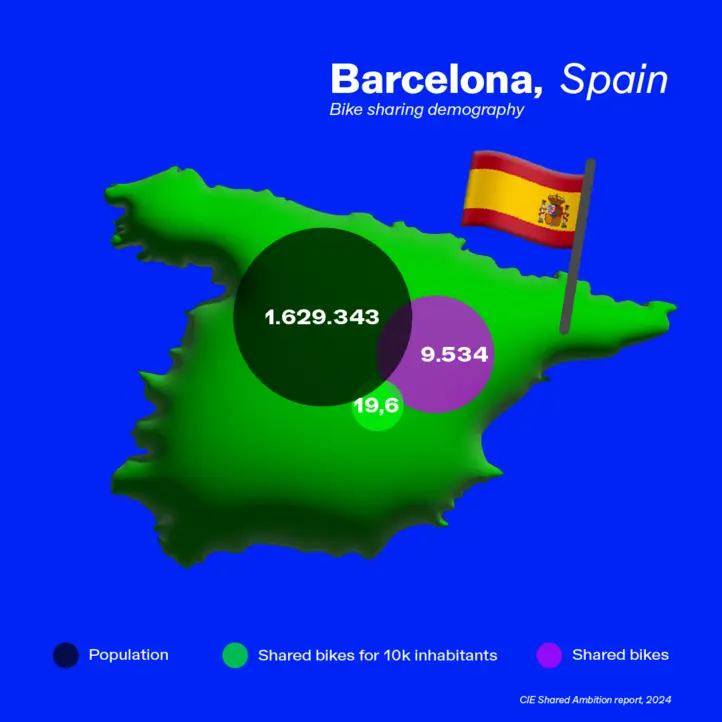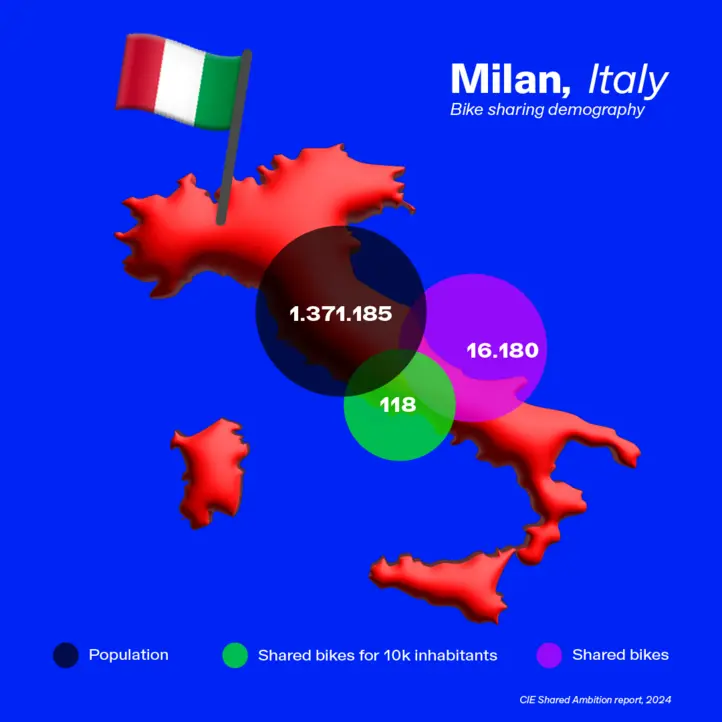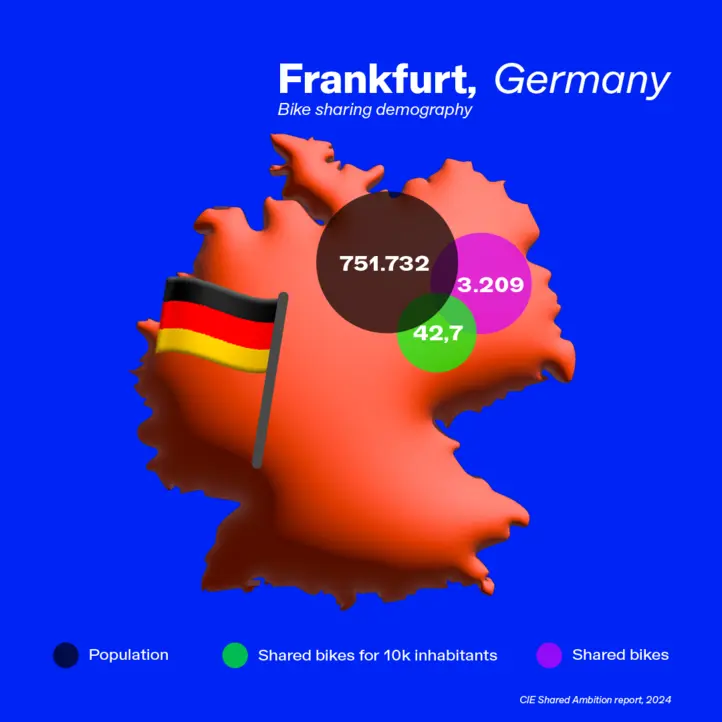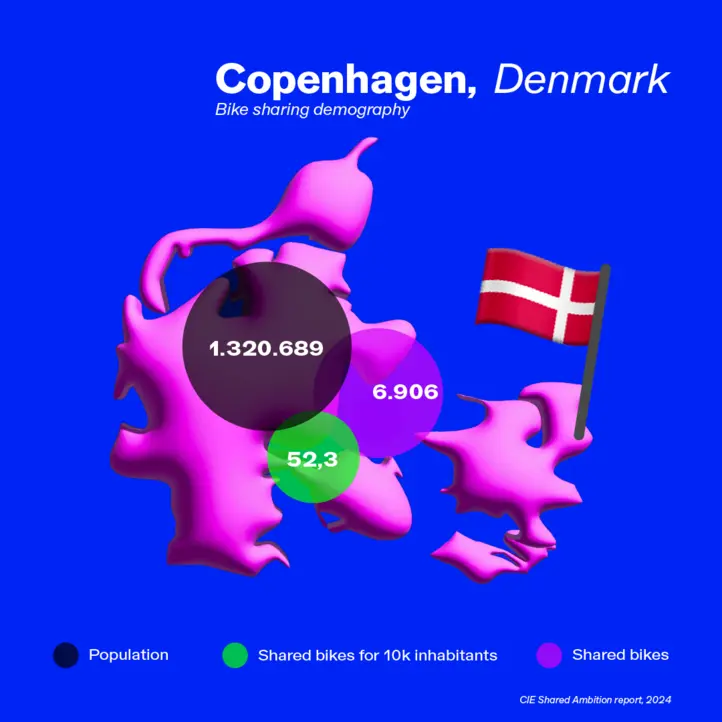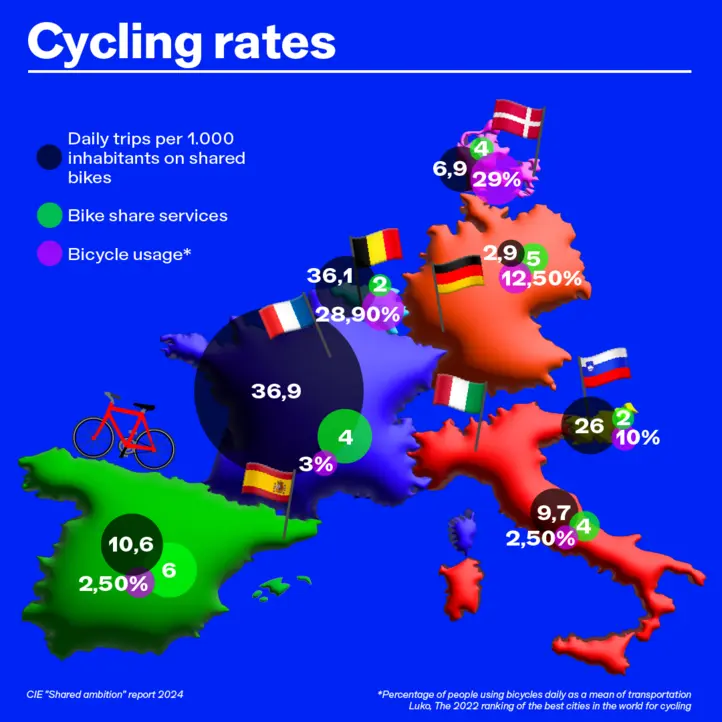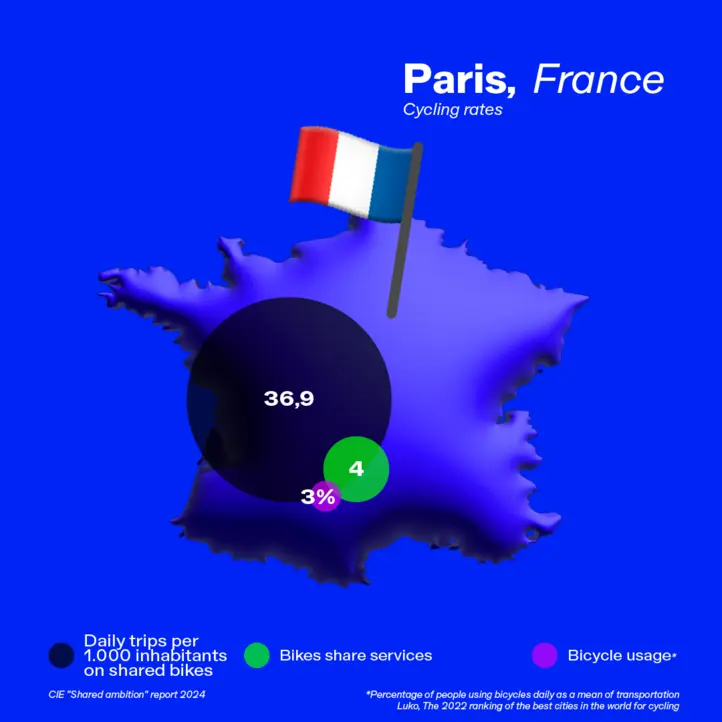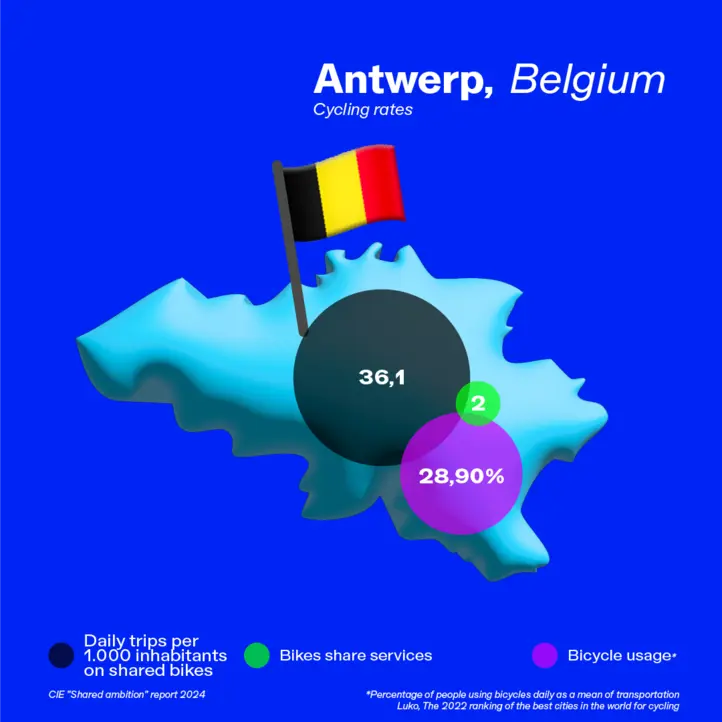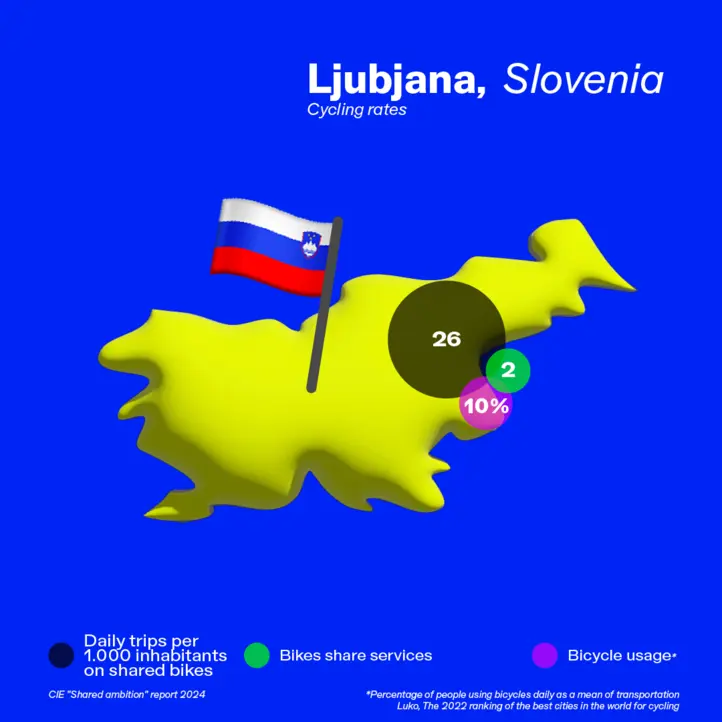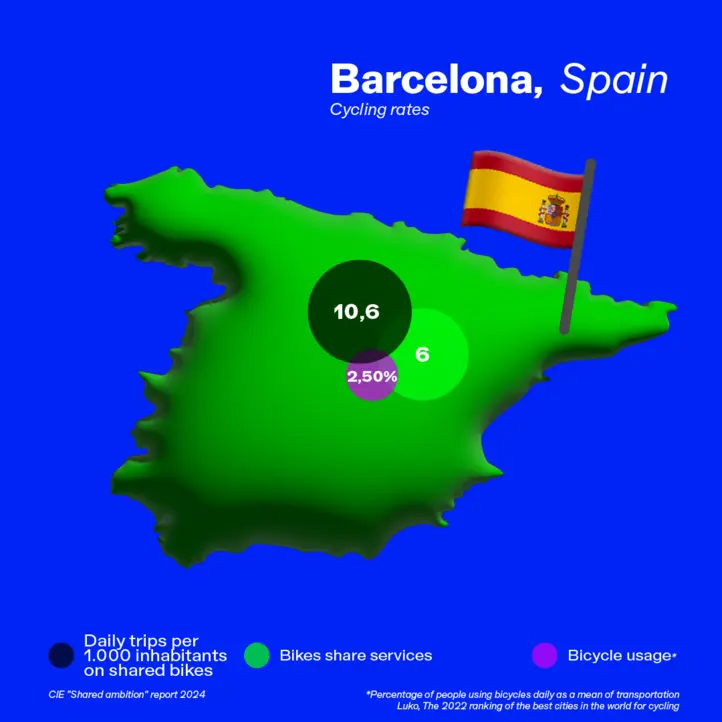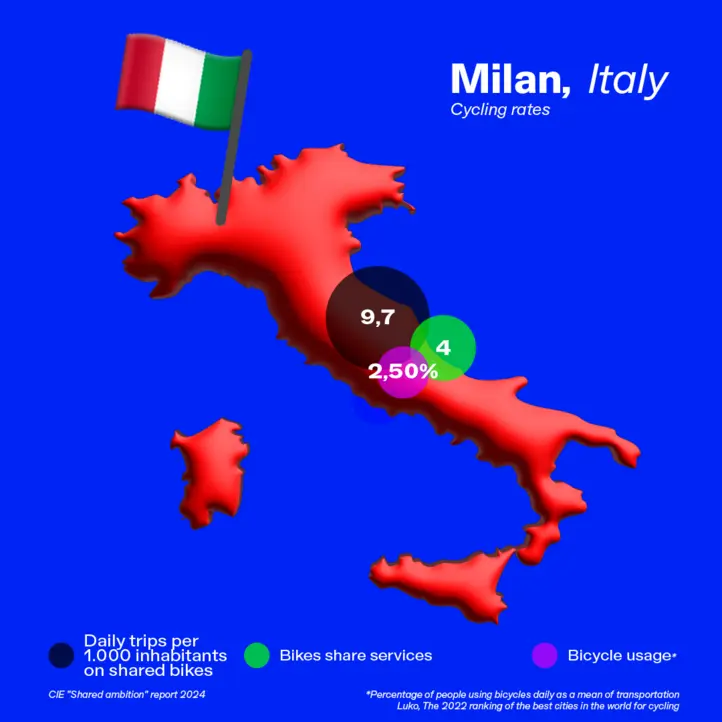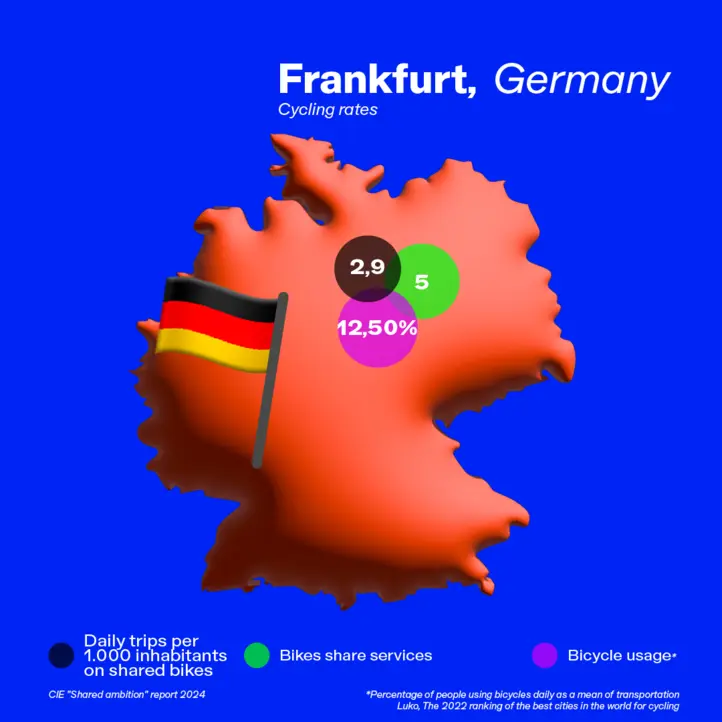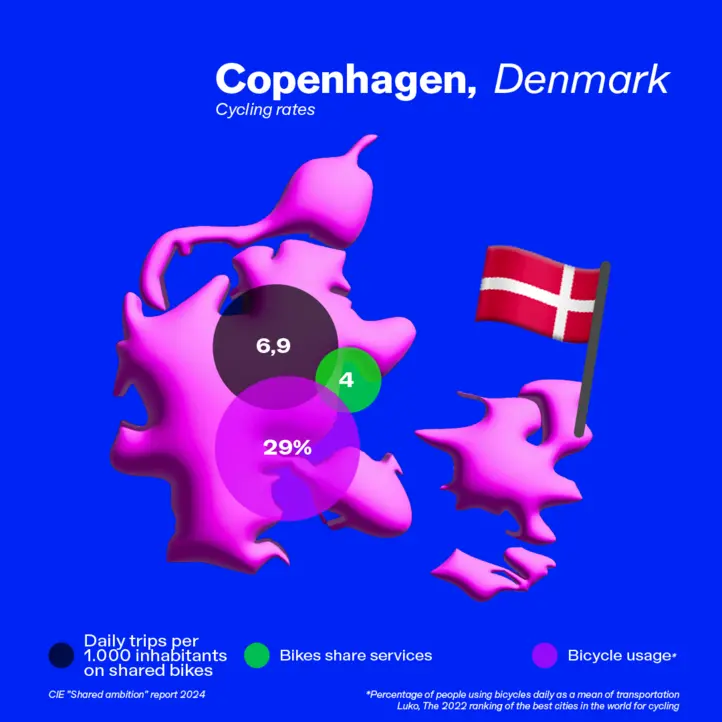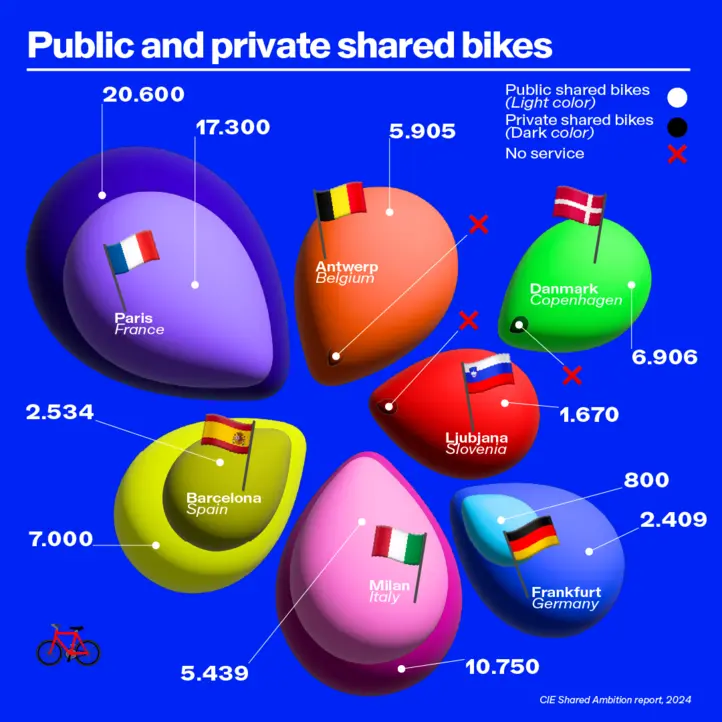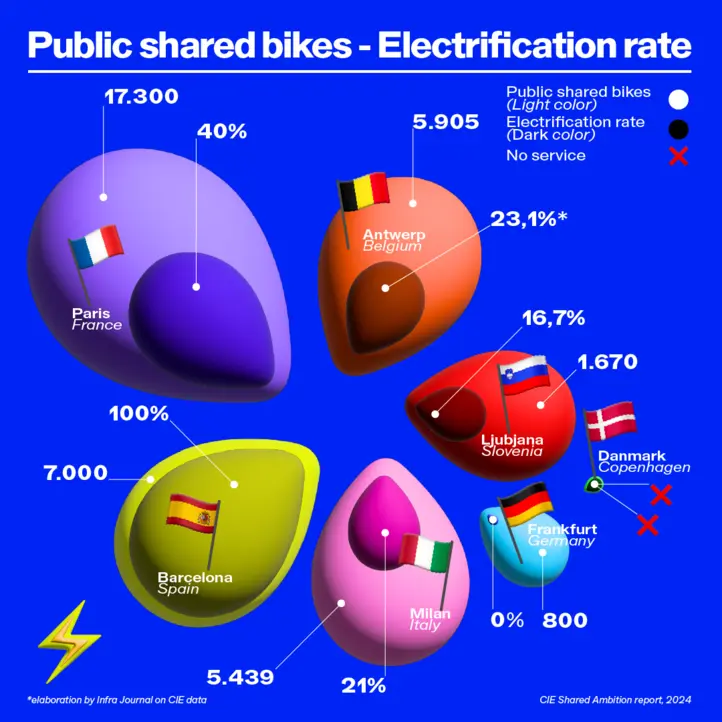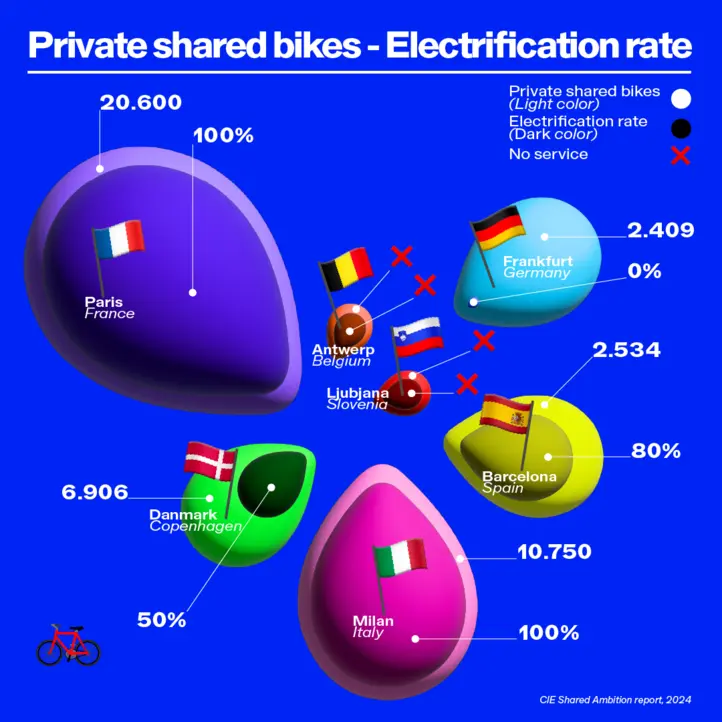Paris, Antwerp, Ljubljana: these are the top three cities in Europe for bike sharing according to 'Shared Ambition 2024', a report by Cycling Industries Europe, which brings together the cycling industry in the European Union. The association assessed service levels in 148 cities, developing various quality metrics for bicycle sharing, whether mechanical or electric, offered by both public and private providers. The database is provided by Fluctuo, a data collection and analysis company in the field of shared mobility.
Interestingly, the top three cities, which differ greatly in terms of urban layout, population, and size, stand out due to the highest number of bike-sharing trips per thousand inhabitants: Paris at 36.9, Antwerp at 36.1, and Ljubljana at 26. The leading five list is completed by Tartu with 20.4 trips and Toulouse with 19.8 trips.
If all cities reached the figure of the fifth-ranked city, this could save 270,000 tons per year of CO2 emissions, according to analysts. This would require 270,000 additional shared bicycles, bringing the total fleet to 470,000 bikes. The Dutch government study indicates a requisite investment of 325 million euros and forecasts an average maintenance expenditure of 1,200 euros per year for each bicycle.
The European Framework
'Shared Ambition' serves as a tool for sector stakeholders, such as managers, operators, and citizens, enabling them to assess and compare the strategies and practices employed by top-performing bike-sharing cities or cities with similar profiles that achieve superior results. The study covers 100 cities from the EU’s 'Climate neutral and smart cities' mission plus 48 cities that are part of the European TEN-T corridors.
The scope is defined by the Sustainable and Smart Mobility Strategy, the New EU Urban Mobility Framework and the European Declaration on Cycling (April 2024), which includes 36 commitments and recognises the bicycle as one of the most sustainable, accessible, inclusive and healthy means of transport with critical importance for European society and economy.
Cycling and bike sharing indeed promote the decarbonisation of urban transport and help achieve the European target of reducing greenhouse gas emissions by 55% by 2030 and reaching climate neutrality by 2050. "Bike sharing is also in the centre of tackling transport poverty and helping people with low income and disabilities, but incentives are needed to be able to ensure affordable access to all users" according to the CIE report. "This is why we recommend that the Member States budget from the Social Climate Fund up to €10 million capital for the largest metropoles to €250,000 for a town of 50,000 population to support bike sharing".
Closing the circle
To define the scope of this analysis, Infra Journal has chosen to weigh the rates of use of shared bicycles, published by CIE, against the cycling usage rates (in general) for daily transport reported by the insurance company Luko (2022), in the selected cities.
As a result, usage rates in cities reveal Paris at 3%, Antwerp at a substantial 28.9%, and Ljubljana at 10%. Thus, the capital of Flanders achieves an excellent result in bike sharing despite the high levels of private bicycle usage, and can be a model for other countries where two-wheelers are part of the urban culture, such as the Netherlands or Denmark. Copenhagen, for example, shows that a high rate of private bicycle use (29%) is not always linked with the number of shared trips: 6.9 per thousand inhabitants, which places the capital outside the top 10 (25th place).
The ban on scooters in Paris has not affected the usage patterns of the Velib system in place since 2007, while bike sharing has doubled the overall fleet. While demand has remained strong, CIE recommends that the Paris/Île de France system expand the public fleet, improve the infrastructure with dedicated lanes, and simplify payment processes via apps.
Ljubljana, on the other hand, shows that it is possible to achieve good results in a medium-sized city with a limited number of shared bicycles (1,670). Two-wheel sharing benefits from a compact historic centre reserved for pedestrians and cyclists. The first hour is completely free. Areas for improvement in this city include better integration with the public transport network, updating the mechanical bicycle inventory, and introducing a unique, affordable rate for public transport subscribers. In accordance with this parameter, other top 10 cities include Lyon, Bologna, Florence, Bordeaux, and Padua.
Infrastructure details
Three of the top 10 cities have a 70% docked fleet, with Paris down at 45%. The growing popularity of private, dockless services throughout urban environments is growing more evident in the largest cities. Florence and Padua, two newcomers to the top performing cities, have no docking stations.
Electric bikes generate proportionally more trips than mechanical bicycles: the share of e-bikes in the overall fleet is 21.36%, compared to 78.64% mechanical bikes, but e-bikes make up 30.65% of all trips, compared to 69.35% powered solely by human effort.
Different viewpoints
The ranking changes when considering other indicators, such as the number of shared bikes per 10,000 inhabitants. Under these metrics, Bordeaux, Milan and Antwerp achieve the top three positions. In Milan, there are over 16,000 bicycles available for a population of 1.3 million, with four sharing operators. Conversely, we see the low number of trips per bicycle (0.8, ranking it at 57th place). According to experts, this is explained by the increase in the BikeMi public fleet between 2022 and 2023, while the offer of shared vehicles in the area has been expanded to include electric scooters and mopeds.
Finally, as concerns the usage rate, Bilbao ranks number one with 7 trips per bike per day. Lyon follows closely with 6.3, and Barcelona records 5.4. The Basque city offers a total of 750 vehicles, all electrified, which makes them attractive for use in the city centre, where they are mainly located. However, the fleet size is inadequate for a city of 900,000 inhabitants, ranking 96th in number of bikes per 10,000 inhabitants.
Barcelona showcases a distinct approach: the 'Bicing' service, launched in 2023, attracted 148,000 subscribers and facilitated 17.6 million rides. Peak usage occurs in summer, when e-bikes cover 11 trips per day. E-bikes ensure 72% of trips and affordable fares are a success factor. Further improvement can be achieved by expanding the service to the metropolitan area, enlarging the e-bike fleet, and developing an integration with public transport.
